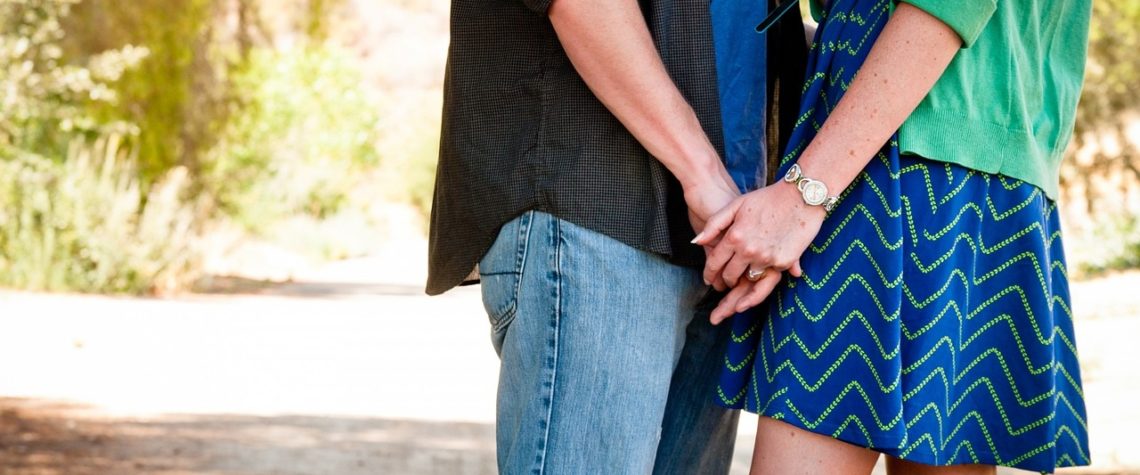It’s that time of year when dating apps see a spike in sign-ups, as men and women take a new year leap to fine someone special in 2024. However, it also open season for scammers too. Dating scams are on the rise and those who are single by widowhood are especially vulnerable.
In fact, b eing the target of an online romance scam has meant that widows are reluctant to rejoin the online dating scene, a new survey has revealed. In a survey of 2000 widows from across the country, commissioned by widows dating app, Chapter 2, it was also found that being scammed online is their second biggest fear, other than the fear of being alone for the rest of their lives following the death of their partner.
eing the target of an online romance scam has meant that widows are reluctant to rejoin the online dating scene, a new survey has revealed. In a survey of 2000 widows from across the country, commissioned by widows dating app, Chapter 2, it was also found that being scammed online is their second biggest fear, other than the fear of being alone for the rest of their lives following the death of their partner.
In the last financial year, the National Fraud Intelligence Bureau (NFIB) received 8,036 reports of romance fraud, amounting to over £92m lost, according to data published by the City of London Police.
In fact, online romance scams have become so widespread that they were the second most prevalent type of scam, worldwide between March and June 2023 – and it’s becoming more and more commonplace.
 The survey revealed that, aside from being members of Chapter 2, widows and widowers were not likely to rejoin traditional dating apps for fear of being the victim of an online scam, and one in five are not active on social media for the same reason. Lloyds Bank recently released research which shows victims who were targets of scams lost on average £8,000 and men now make up the majority of new cases.
The survey revealed that, aside from being members of Chapter 2, widows and widowers were not likely to rejoin traditional dating apps for fear of being the victim of an online scam, and one in five are not active on social media for the same reason. Lloyds Bank recently released research which shows victims who were targets of scams lost on average £8,000 and men now make up the majority of new cases.
Targets of online romance scams were also found to be between the ages of 65 – 74 – with the number of cases amongst this age group rising by almost 75% year-on-year.
 Chapter 2 is a dating app set up specifically for widows and widowers, by widowers. Chapter 2 is a safe space for anyone who wants to get back into the world of online dating and features community forums and is open to any widow or widower looking for friendship, companionship or romance and the sign-up and verification process is extremely rigorous to prevent scammers or bots.
Chapter 2 is a dating app set up specifically for widows and widowers, by widowers. Chapter 2 is a safe space for anyone who wants to get back into the world of online dating and features community forums and is open to any widow or widower looking for friendship, companionship or romance and the sign-up and verification process is extremely rigorous to prevent scammers or bots.
In one survey response, a widow from Telford, said: “I’ve been taken in by a fraudster online. I fear I am an easy target for men with a hidden agenda because I’m a widow.” Another from Glasgow, said: “Once I was ready to start dating again, I tried my hand at those popular dating apps. The problem was, once I told anybody I was widowed, they either thought I was loaded or desperate.”
One widow from Manchester, said she had been the victim of an online sweetheart scam: “I always considered myself to be acutely aware of the traditional scams that go round. Of course, I wouldn’t give any details to the traditional, well-known scam text messages I received, which is why I felt so stupid and ashamed when I actually did get scammed.
She added: “He played the long game, too. We chatted for weeks before he made up a story to convince me to send over some money. It was only a small amount, so I told my friend about it afterwards. She woke me up to the fact I’d been scammed. I blocked all contact immediately, changed my number and deleted my profile from the site.”

Founder of Chapter 2, Nicky Wake, as a widow herself, understands the vulnerabilities of widows and widowers following their loss. She created Chapter 2 after her own negative experiences using dating apps and recognises how crucial safe spaces are for the widowed community.
She said: “The safety and privacy of our community is our number one priority. Dating should be an enjoyable and fulfilling experience, but it’s crucial to remain vigilant and cautious in the face of potential scams, particularly aimed at widows. Our platform is a safe and secure space which is only open to widows and widowers. We recognise that as widows we can be vulnerable and so the platform has a rigorous sign-up process, all profiles are vetted and users can report any suspicious activity, messages or behaviour. All confidential data is stored securely, you choose what you share on your profile.”
“By recognising the signs of a dating scam and taking proactive steps to protect yourself, you can navigate the dating world with confidence and peace of mind.”
Nicky outlines some of the things to watch out for, when using online dating apps:
Common Tactics
● False Identities: Scammers create elaborate backstories and use stolen photos to
establish trust.
● Over-the-Top Declarations of Love: They may profess deep feelings early on to
create a sense of urgency or commitment.
● Financial Requests: Scammers often invent emergencies or hardships, asking for
money or gifts.
Red Flags to Watch Out For:
● Refusal to Meet in Person: If someone constantly avoids face-to-face meetings, it
may be a sign of a scam.
● Inconsistent Stories: Be wary of individuals who change details about themselves
or their lives.
● Pressure for Personal Information: Scammers may push for private details or
financial information prematurely.
Protecting Yourself
● Use Reputable Dating Platforms: Stick to well-known, trusted dating sites with
strong security measures, like Chapter 2.
● Never Share Personal Information: Avoid giving out sensitive information like your
address, financial details, or passwords.
● Trust Your Instincts: If something feels off, don’t ignore your gut feelings.
For more information, please visit Chapter 2 or read Chapter 2’s online safety tips
here.














